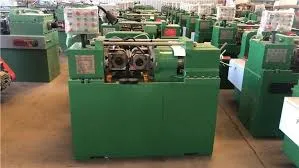
-
 Afrikaans
Afrikaans -
 Albanian
Albanian -
 Amharic
Amharic -
 Arabic
Arabic -
 Armenian
Armenian -
 Azerbaijani
Azerbaijani -
 Basque
Basque -
 Belarusian
Belarusian -
 Bengali
Bengali -
 Bosnian
Bosnian -
 Bulgarian
Bulgarian -
 Catalan
Catalan -
 Cebuano
Cebuano -
 Corsican
Corsican -
 Croatian
Croatian -
 Czech
Czech -
 Danish
Danish -
 Dutch
Dutch -
 English
English -
 Esperanto
Esperanto -
 Estonian
Estonian -
 Finnish
Finnish -
 French
French -
 Frisian
Frisian -
 Galician
Galician -
 Georgian
Georgian -
 German
German -
 Greek
Greek -
 Gujarati
Gujarati -
 Haitian Creole
Haitian Creole -
 hausa
hausa -
 hawaiian
hawaiian -
 Hebrew
Hebrew -
 Hindi
Hindi -
 Miao
Miao -
 Hungarian
Hungarian -
 Icelandic
Icelandic -
 igbo
igbo -
 Indonesian
Indonesian -
 irish
irish -
 Italian
Italian -
 Japanese
Japanese -
 Javanese
Javanese -
 Kannada
Kannada -
 kazakh
kazakh -
 Khmer
Khmer -
 Rwandese
Rwandese -
 Korean
Korean -
 Kurdish
Kurdish -
 Kyrgyz
Kyrgyz -
 Lao
Lao -
 Latin
Latin -
 Latvian
Latvian -
 Lithuanian
Lithuanian -
 Luxembourgish
Luxembourgish -
 Macedonian
Macedonian -
 Malgashi
Malgashi -
 Malay
Malay -
 Malayalam
Malayalam -
 Maltese
Maltese -
 Maori
Maori -
 Marathi
Marathi -
 Mongolian
Mongolian -
 Myanmar
Myanmar -
 Nepali
Nepali -
 Norwegian
Norwegian -
 Norwegian
Norwegian -
 Occitan
Occitan -
 Pashto
Pashto -
 Persian
Persian -
 Polish
Polish -
 Portuguese
Portuguese -
 Punjabi
Punjabi -
 Romanian
Romanian -
 Russian
Russian -
 Samoan
Samoan -
 Scottish Gaelic
Scottish Gaelic -
 Serbian
Serbian -
 Sesotho
Sesotho -
 Shona
Shona -
 Sindhi
Sindhi -
 Sinhala
Sinhala -
 Slovak
Slovak -
 Slovenian
Slovenian -
 Somali
Somali -
 Spanish
Spanish -
 Sundanese
Sundanese -
 Swahili
Swahili -
 Swedish
Swedish -
 Tagalog
Tagalog -
 Tajik
Tajik -
 Tamil
Tamil -
 Tatar
Tatar -
 Telugu
Telugu -
 Thai
Thai -
 Turkish
Turkish -
 Turkmen
Turkmen -
 Ukrainian
Ukrainian -
 Urdu
Urdu -
 Uighur
Uighur -
 Uzbek
Uzbek -
 Vietnamese
Vietnamese -
 Welsh
Welsh -
 Bantu
Bantu -
 Yiddish
Yiddish -
 Yoruba
Yoruba -
 Zulu
Zulu
Custom Types of Thread Rolling Machines for Precision Manufacturing
Custom Types of Thread Rolling Machines
Thread rolling machines are crucial in the manufacturing industry, used primarily for creating threads on metal parts. Unlike traditional machining processes that cut threads, thread rolling utilizes a cold-forming technique that produces stronger and more accurate threads. As industries evolve, the demand for specialized applications has led to the development of custom types of thread rolling machines tailored for various needs.
Types of Thread Rolling Machines
1. Flat Die Thread Rollers These machines feature flat dies that come together to form threads on the workpiece. They are ideal for producing threads on cylindrical parts and can accommodate a wide range of diameters. The flat die design allows for high precision and low machining time, making them suitable for high-volume production runs.
2. Rotary Die Thread Rollers In contrast to flat die machines, rotary die thread rollers use two rotating dies that apply pressure to the workpiece, forming threads as it passes through. This method is efficient for creating both external and internal threads and is commonly used for producing fasteners and components in the automotive and aerospace industries.
3. Multi-Station Thread Rolling Machines These machines feature multiple stations for rolling threads on different workpieces simultaneously. This design significantly enhances productivity and is ideal for manufacturers who need to produce large numbers of identical parts quickly. Multi-station machines can be equipped with various die sets, allowing for easy customization for different thread types and sizes.
custom types of thread rolling machine

4. Vertical and Horizontal Thread Rollers Depending on the layout of the production floor, manufacturers can choose between vertical or horizontal thread rolling machines. Vertical machines tend to have a smaller footprint, making them suitable for facilities with limited space. Conversely, horizontal machines generally allow for easier loading and unloading of larger components.
Customization Options
One of the key advantages of modern thread rolling machines is the ability to customize them to meet specific production needs. Manufacturers can work closely with machine builders to design custom die sets, adjust roller configurations, and implement automation features. This level of customization ensures that the machinery can produce threads with varying profiles, pitches, and diameters, catering to specialized applications in different industries such as telecommunications, defense, and medical devices.
Moreover, custom thread rolling machines can incorporate advanced features such as programmable controls, integrated inspection systems, and real-time monitoring capabilities to enhance efficiency and ensure quality. These innovations allow manufacturers to maintain tight tolerances and improve overall production consistency.
Conclusion
As the demand for precision-engineered components continues to grow, custom types of thread rolling machines have become indispensable in various sectors. By investing in specialized machinery, companies can improve production efficiency, reduce waste, and produce higher-quality threaded parts. This adaptability not only meets current market demands but also positions manufacturers to respond to future challenges in a constantly evolving industry landscape. The integration of advanced technology and customization will undoubtedly play a pivotal role in the future of thread rolling processes, setting new standards for performance and efficiency.
